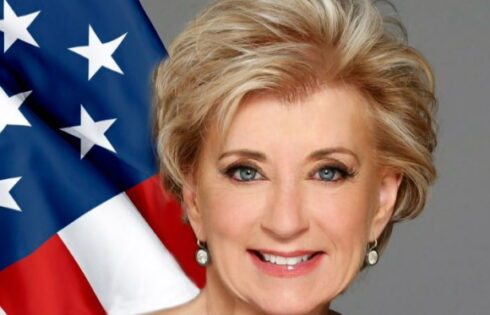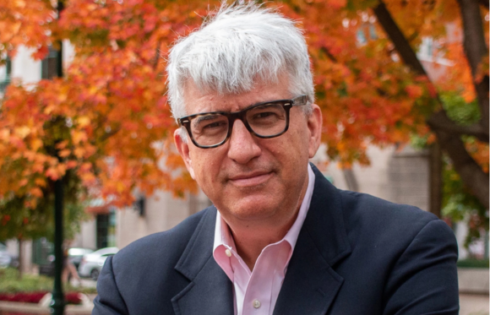
Religion-based punishment means the college is exempt
The National Labor Relations Board is sending mixed signals to religious colleges as to whether they must allow faculty members to unionize.
A year after its Seattle office told Pacific Lutheran University (PLU) that its full-time contingent faculty can unionize because they perform no “religious function” and are not “managerial,” the same office has shot down union-minded faculty at Montana’s Carroll College.
The difference at the Catholic college? The role of faculty and the religion-based discipline that Carroll can impose on them, according to the decision and order written by Regional Director Ronald Hooks.
“We understood that our case raised a number of challenging issues, and we hoped that the PLU decision would open the door for a faculty union at Carroll,” Kay Satre, who chairs the Department of Languages and Literature and spokesperson for union backers, told The College Fix in an email.
She said “the faculty supporting a union voted overwhelmingly to appeal” the decision to the national office.
Even the threat of firing for ‘serious disrespect’ of its Catholic mission is enough
The office rejected the union bid at Carroll because the tenured and tenure-track faculty seeking to unionize qualify as “managers,” thus putting them outside the NLRB’s jurisdiction.
Hooks wrote that those Carroll faculty make up committees involving the college’s curriculum, majors, minors, and other requirements. These committees are also responsible for hiring and promoting other employees, thus giving them managerial authority over “academic programs, academic policy, and personnel policy and decisions.”
RELATED: Feds throw open the door to adjunct faculty unionizing at religious schools
Hooks admitted that his office’s decision in the PLU case “does not provide clarity as to which types or numbers of factors a [college] must prove in order to meet its burden” that its professors are managers, and thus not able to unionize.
The Seattle office also ruled that Carroll provides a “religious educational environment” because its faculty handbook says faculty can be fired for “continued serious disrespect or disregard for the Catholic character or mission,” whether or not they are Catholic.
A beautiful Sunday. A beautiful view. #cathedral #sunday
Posted by Carroll College on Sunday, January 31, 2016
It appears that provision has only been exercised one, according to testimony before the Seattle office. President Thomas Evans said it happened “somewhere from 1999 to 2001” – before his appointment – and he “refused to testify to the details of the incident,” according to the decision.
“Again, the record contains no documentation or other testimony regarding this discharge, such as discharge documents or other facts relied upon in the decision to discharge this faculty member,” it continued.
One faculty member was briefly disciplined “for inviting a Planned Parenthood speaker to campus,” the order recounts from testimony. When the disciplined professor pointed out that the event featured a speaker who discussed “Catholic views on the matter,” the college overturned the discipline.
“By recognizing the fact that the petitioned-for faculty are managerial in many key areas of the college, the NLRB acknowledges the crucial role the faculty have in the college’s decision-making structure,” President Evans said in a statement. And as the Seattle office recognized, Carroll’s faculty are “held accountable to the Catholic character and mission” of the school, he said.
‘Clear difference of opinion’ on how much power faculty have
The decision was “interesting” for how it accepted Carroll’s faculty handbook as the litmus test for whether its faculty provide a religious educational environment, William Herbert, executive director of the National Center for the Study of Collective Bargaining in Higher Education and the Professions at Hunter College, told The Fix in a phone interview.
The Association of Catholic Colleges and Universities has remained neutral on faculty unions but has questioned the NLRB for saying it will determine whether a college is religious.
Spokesperson Paula Moore told The Fix in an email that the decision “appears to be a thoughtful one that is consistent with the existing law regarding the unionization of full-time faculty members at religiously sponsored institutions.”
The decision makes clear that faculty members are “partners with administration in the governance of their institution,” Moore continued. “This emphasis on shared governance is very much in the tradition of Catholic social thought.”
As of now no faculty have said they are leaving the college because of the decision, Carroll Director of Public Relations Sara Lawlor told The Fix in an email. Echoing Evans’ statement in Carroll’s press release, Lawlor said: “We believe this has been a valuable process for the college.”
Faculty backers of the union effort aren’t so sure. “The administration opposed our efforts to unionize from the start,” said Satre, the chair of the literature department. “The faculty who worked on the effort to unionize were disappointed.”
Tension is present at the college, “because there is a clear difference of opinion about how much decision making power the faculty should share with administration, and what mechanisms are necessary to enable real shared decision making for faculty,” said Satre.
The MEA-MFT labor union, which is Montana’s largest, told The Fix in an email that it “unequivocally support[s] organizing faculty for collective bargaining purposes at Carroll College.”
RELATED: Too expensive to fight faculty union push, private university says in giving up
Like The College Fix on Facebook / Follow us on Twitter
IMAGE: CREATISTA/Shutterstock




Please join the conversation about our stories on Facebook, Twitter, Instagram, Reddit, MeWe, Rumble, Gab, Minds and Gettr.